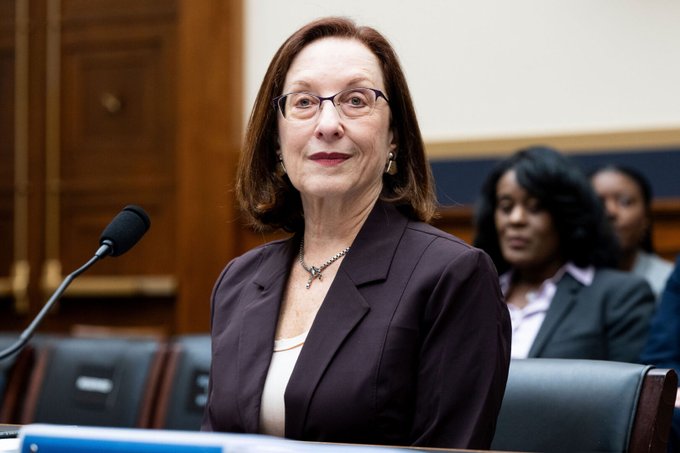A federal district judge dealt a significant blow to a former copyright official’s attempt to block the Trump administration from removing her from office, ruling that she failed to demonstrate the irreparable harm necessary for court intervention.
U.S. District Judge Timothy Kelly rejected Shira Perlmutter’s request for a temporary restraining order on Wednesday, allowing her dismissal from the U.S. Copyright Office to proceed while her broader legal challenge continues.
Perlmutter served as Register of Copyrights since October 2020 and challenged her removal by the Trump administration.
She argued that presidential firing authority does not extend to her position.
The former copyright director sought emergency court relief to maintain her position during ongoing litigation against the new administration’s personnel decisions.
Judge Kelly’s ruling focused narrowly on the immediate request for a restraining order rather than addressing the underlying constitutional questions about presidential removal powers.
President Trump appointed Deputy Attorney General Todd Blanche as Librarian of Congress, replacing Carla Hayden, who had originally selected Perlmutter for the copyright position.
The U.S. Copyright Office functions as a division within the Library of Congress, with its director chosen by the Librarian of Congress rather than through direct presidential appointment.
Perlmutter’s lawsuit targets both Blanche and broader Trump administration officials, challenging the authority to remove her from the federal position.
Justice Department attorneys argued in court filings that Perlmutter incorrectly claimed exemption from standard governmental removal procedures, according to the Associated Press.
“The Constitution creates three branches of Government. There is Congress, the Executive, and the Judiciary,” government lawyers stated.
“There is no fourth constitutional category reserved for an indeterminate-and-multiplying number of autonomous federal organizations.”
“That simple principle suffices to deny Plaintiff’s motion.”
The administration’s legal team emphasized Trump’s orderly approach to the personnel changes, describing the removal process as following proper governmental procedures.
“The President of the United States removed Carla Hayden from her position as Librarian of Congress and designated the Deputy Attorney General, Todd Blanche, as acting Librarian,” the Justice Department filing explained.
Federal attorneys detailed the sequence of personnel actions, noting that Blanche subsequently ratified Perlmutter’s removal and appointed Paul Perkins as her replacement.
Government lawyers asserted presidential authority over the Library of Congress, arguing it falls under executive branch control rather than operating as an independent entity.
“The Library of Congress is not an autonomous organization free from political supervision. It is part of the Executive Branch and is subject to presidential control, according to the strictures of the Federal Vacancies Reform Act,” the filing stated.
The Justice Department directly challenged Perlmutter’s claim to continued employment, stating “Plaintiff has no right to perpetual service as Register of Copyrights.”
Federal attorneys dismissed concerns about institutional damage, arguing that Perlmutter cannot claim injuries to the Library of Congress or Congress itself as grounds for her personal reinstatement.
The government’s position emphasized that the U.S. Copyright Office itself faces no operational threats from the leadership changes.
Roll Call reported that following the court ruling, the White House reaffirmed its stance on executive branch personnel decisions through spokesperson Anna Kelly.
“All organizations are more effective when leaders are rowing in the same direction,” Kelly stated, defending the administration’s approach to federal appointments.
The White House representative emphasized presidential prerogatives over executive branch staffing, declaring that “President Trump reserves the right to remove employees within his own Executive Branch who exert his executive authority.”
While Judge Kelly’s ruling allows the personnel changes to proceed, Perlmutter’s broader constitutional challenge regarding presidential removal powers remains pending in federal court.


